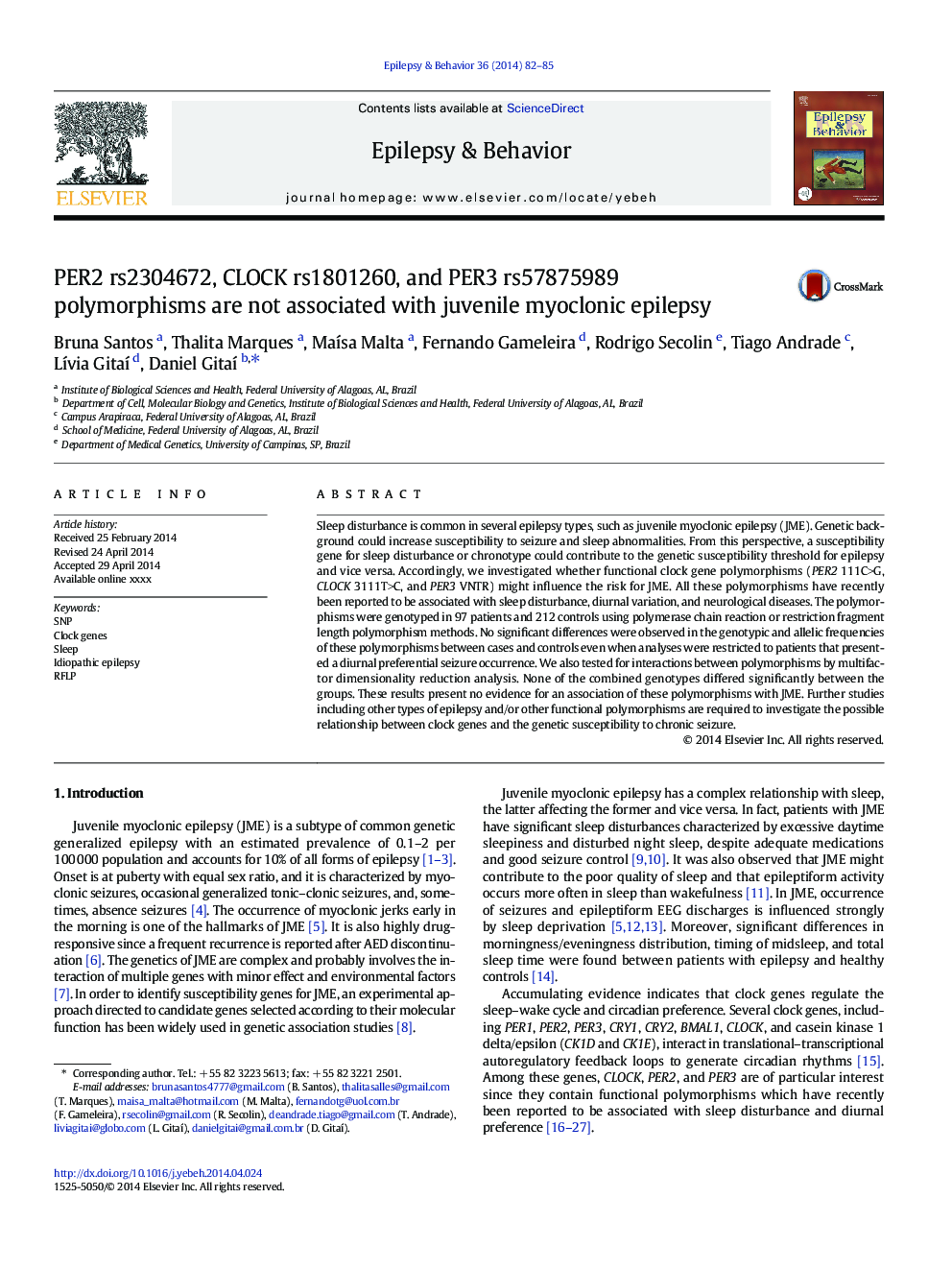| Article ID | Journal | Published Year | Pages | File Type |
|---|---|---|---|---|
| 6012396 | Epilepsy & Behavior | 2014 | 4 Pages |
Abstract
Sleep disturbance is common in several epilepsy types, such as juvenile myoclonic epilepsy (JME). Genetic background could increase susceptibility to seizure and sleep abnormalities. From this perspective, a susceptibility gene for sleep disturbance or chronotype could contribute to the genetic susceptibility threshold for epilepsy and vice versa. Accordingly, we investigated whether functional clock gene polymorphisms (PER2 111C>G, CLOCK 3111T>C, and PER3 VNTR) might influence the risk for JME. All these polymorphisms have recently been reported to be associated with sleep disturbance, diurnal variation, and neurological diseases. The polymorphisms were genotyped in 97 patients and 212 controls using polymerase chain reaction or restriction fragment length polymorphism methods. No significant differences were observed in the genotypic and allelic frequencies of these polymorphisms between cases and controls even when analyses were restricted to patients that presented a diurnal preferential seizure occurrence. We also tested for interactions between polymorphisms by multifactor dimensionality reduction analysis. None of the combined genotypes differed significantly between the groups. These results present no evidence for an association of these polymorphisms with JME. Further studies including other types of epilepsy and/or other functional polymorphisms are required to investigate the possible relationship between clock genes and the genetic susceptibility to chronic seizure.
Related Topics
Life Sciences
Neuroscience
Behavioral Neuroscience
Authors
Bruna Santos, Thalita Marques, MaÃsa Malta, Fernando Gameleira, Rodrigo Secolin, Tiago Andrade, LÃvia GitaÃ, Daniel GitaÃ,
